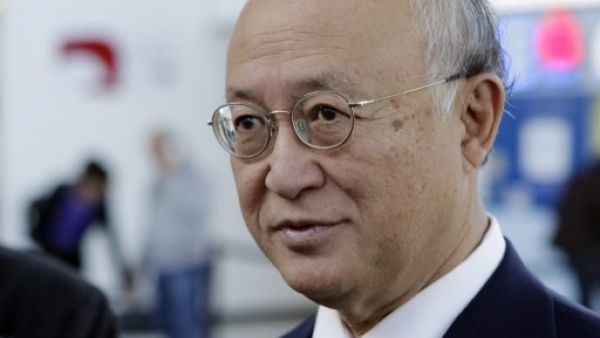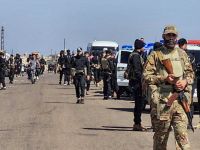The head of the U.N. atomic watchdog is holding talks in Tehran on Monday, following the negotiations between Iran and world powers in Geneva that failed to reach an initial agreement on the nation’s nuclear program.
International Atomic Energy Agency chief Yukiya Amano said that his negotiations were “independent” from those held in Switzerland between Iran and the six world powers, known as the P5+1, Agence France-Presse reported.
A deal with the IAEA for Iran could repair the damaged hopes for progress ahead of the next P5+1 round on November 20.
“The only reason he (Amano) would go would be if he’s confident that they were going to agree on something,” one Western diplomat in Vienna told AFP, predicting an initial accord with “confidence-building measures”.
Amano said that Iran and the U.N. body had reached a “very important point,” according to AFP.
“Iran presented a new proposal (to the IAEA) last month that includes practical measures to strengthen cooperation and dialogue, and we hope to build on it,” Amano said.
The chief’s last trip to Tehran in May 2012, failed to reach an agreement with Iran.
The IAEA conducts regular inspections of Iran’s nuclear facilities but also wants Iran to answer allegations that it was trying before 2003, and maybe since, to develop a nuclear weapon.
Iran denies the allegations and claims its nuclear program is for peaceful purposes.
For two years Tehran has resisted the IAEA’s requests to visit sites as well as to consult documents and speak to certain Iranian scientists.
The sites include the Parchin military base where the IAEA wants to probe claims that scientists conducted explosives tests that it says would be “strong indicators of possible nuclear weapon development,”according to AFP.
Discussions with the United States, China, Russia, Britain, France and Germany are focused on Tehran’s current activities, in particular uranium enrichment, with Iran seeking sanctions relief.
The countries also want Tehran to accept more intrusive inspections by the watchdog as part of a wider accord.
The IAEA would also be closely involved in monitoring any freeze in enrichment and in Iran sending its stockpiles of nuclear material to a third country.
The three-day intense negotiations in Geneva in a bid to curb Iran’s uranium enrichment and ease sanctions failed to reach an agreement.
Iranian Foreign Minister Mohammad Javad Zarif said on Sunday that he hoped Iran and the P5+1 countries would reach an agreement in their next meeting, adding that the latest round of talks was something all delegations can build on.
But Iran’s President Hassan Rouhani, said on Sunday that the country’s “rights to enrichment” of uranium were “red lines” and that his nation will not bow its head to any threat or sanction against it.
His comments came after U.S. Secretary of State John Kerry said on Sunday that the United States is determined to ensure that Iran does not acquire a nuclear weapon.









